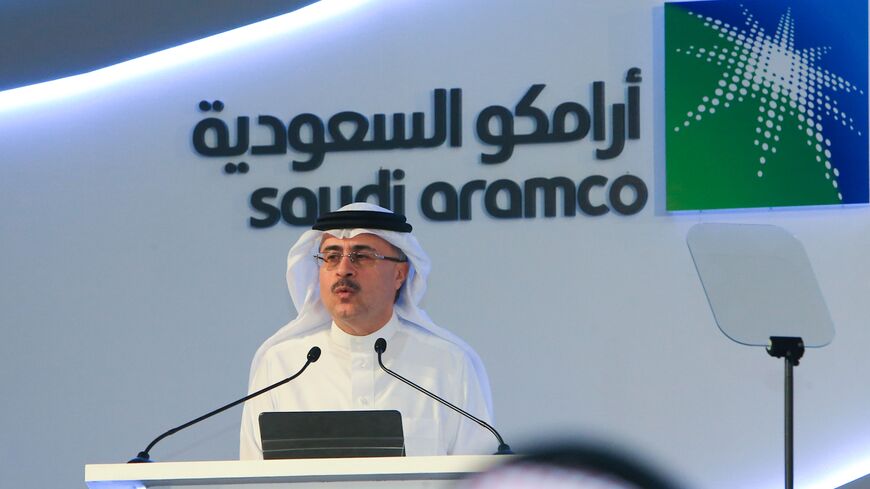Oil giant Saudi Aramco met with around 80 Turkish contractors this week to discuss $50 billion worth of potential projects in the kingdom, Bloomberg reported Thursday.
The head of the Turkish Contractors Association, Erdal Eren, told Bloomberg that potential projects are planned through 2025.
“Aramco wants to see as many Turkish contractors as possible in its projects,” Eren said. “They are planning refinery, pipeline, management buildings and other infrastructure construction that will be worth $50 billion in investment.” Aramco will soon draw up a list of contractors that will work on the projects, and the parties will reconvene again soon in Saudi Arabia.
The move marks a significant moment for both countries’ economies. Aramco is the third most valuable company in the world and has an unparalleled influence on global oil markets. Turkish businesses, meanwhile, have been hit hard by the war in Ukraine and several deadly earthquakes earlier this year that claimed the lives of around 50,000 people.
Over the years, the two major regional powers had grown more distant over Erdogan’s ties to the Muslim Brotherhood and the 2018 killing of the Saudi journalist living in US Jamal Khashoggi. Khashoggi was killed in 2018 at the Saudi consulate in Istanbul by government agents from the kingdom. His murder created a rift between Riyadh and Ankara.
But experts tell Al-Monitor that this new financial agreement could be part of an effort to reset ties and establish Ankara's economic independence from the West.
Imdat Oner, a former diplomat and senior policy analyst at Jack D. Gordon Public Policy Institute of Florida International University, said that Aramco’s interest in engaging Turkish contractors can be seen as part of the ongoing reconciliation efforts between Ankara and Riyadh.
"The transfer of the Jamal Khashoggi case from Turkey to Saudi authorities, following the Turkish court's decision to halt the trial of the 26 Saudis accused of his murder, was a significant step in this process,” he told Al-Monitor. “Closing the Khashoggi investigation was a key demand of Riyadh before any reconciliation.”
Oner said that the Turkish government's prioritization of good relations with Saudis, particularly in terms of investment and trade, seems to have taken precedence over the pursuit of justice in the Khashoggi case.
“President Erdogan is actively seeking opportunities to alleviate economic pressures on the Turkish economy. In this context, the contracts with Gulf countries and companies, including Aramco, should be seen as Erdogan's post-election strategy to partially alleviate the serious economic challenges faced by Turkey,” Oner added.
The Turkish economy is going through a significant currency crisis, with the lira devaluating and with Erdogan only winning his third term by a narrow margin. He has no choice but to change his approach.
Soner Cagaptay, the Beyer Family Fellow and director of the Turkish Research Program at The Washington Institute, said that Saudi Crown Prince Mohammed bin Salman (MBS) has been “very generous” toward Erdogan “for over a year now.”
He said the key moment was when Turkish courts in April 2022 transferred the case accusing MBS of ordering the killing of journalist Khashoggi in the consulate in Istanbul to courts in Saudi Arabia, allowing the royal to evade responsibility for the murder.
“As a result, last year, the crown prince gave $5 billion to put into Turkey’s economy with no strings attached,” Cagaptay said. “That money I think together with other monies from the Gulf, UAE and Russian money coming in helped Erdogan stabilize the lira, which was in freefall, and also hand out some of these monies in the form of very generous social security handouts."
He added, “Wage increases, loan forgiveness and cheap credit and all of that, so you could say that together … Putin and Gulf monarchies have helped Erdogan win elections, and I think this is the next stage.”
Cagaptay noted that Erdogan mentioned only two foreign actors — Russia and the Gulf states — in his most election campaign which saw him get elected for a third term, and he said he would reward them.
The expert expected deepening of Turkish-Saudi and Turkish-Emirati ties going forward, and Ankara will not impose sanctions on Russia for its invasion of Ukraine in order to maintain strong relations with Moscow.
The United Arab Emirates and Turkey ratified on Wednesday a cooperation agreement aiming to raise bilateral trade to $40 billion within five years.
“I think this kind of part of Erdogan’s effort to stabilize the economy because financial markets in the West avoid Turkey in general and some have argued that it’s a bigger long-term plan to give Turkey independence on its chronic dependence on financial inflows from the West," Cagaptay said.








